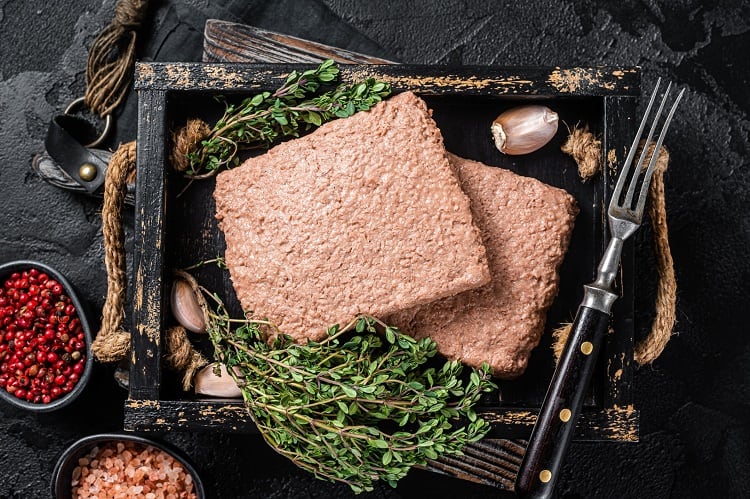2023 was a challenging year for the plant-based meat category. From Beyond Meat’s dramatic revenue drop in the US to plant-based meat makers falling into administration in the UK (including Plant & Bean, Meatless Farm, and most recently Heather Mill’s VBites), the market has experienced downturns on both sides of the pond.
Industry is confident they can turn things around. But ensuring that ingredients lists, processing methods, and plant-based formats appeal to the increasingly educated consumer, will have to be part of the solution.
Educated and demanding consumers
Consumers are paying more attention to what’s on their plate. And whether they’re increasing their awareness and knowledge around food through blogs or online searches, education is increasing, according to Janine Gierman, sales director at ingredients supplier Corbion.
“Consumers are becoming more educated…and demanding,” she told FoodNavigator at the recent Food Ingredients Europe (FiE) event in Frankfurt, Germany. “That translates into [putting] plant-based under the microscope.”
If a shopper scans the ingredients list on a plant-based meat product and it comes across as a ‘chemical factory’, they’re likely to start asking questions.
“Consumers want to know what’s in it, but they also want to know why. The next…trend will be asking questions of the manufacturers: ‘Why is this in it? Why do we need it?’”
For Corbion, it’s not just about having a ‘clean label’, but about having a ‘clear label’ that consumers can understand. Manufacturers have already observed this trend, and are responding with natural ingredients, the sales director explained. “It’s already happening. Our customers are saying [they] need natural alternatives to all these artificial ingredients.”
Indeed, ‘natural’ in plant-based is ‘high on the radar’, we were told. Much more so than in animal-based products, consumers want to be reassured that what they are consuming in plant-based is ‘natural’. If it’s not natural, they may well query whether the plant-based meat product in question is truly an alternative, Gierman suggested.

Focus does not lie on ingredients alone, but also on processing. Most categorise degree of processing by turning the NOVA system, developed in 2009. NOVA splits level of food processing into four classifications: raw and minimally processed foods; processed culinary ingredients; processed foods; and ultra-processed foods.
A growing number of studies suggest links between UPF and health risks, putting consumers on edge. Research has also suggested that although some consumers struggle to distinguish between ultra-processed and processed foods, they want to cut back on both.
As a result, degree of processing is also on industry’s radar. “Processed foods is on the agenda. There are a lot of companies working on programmes to reduce the process steps,” revealed Mel Tunderman, vice president of savory, EMEA, at ingredients supplier ADM.
Flexitarians don’t need to replace meat for a meat-free burger
Another reason brands may need to respond to the increasingly demanding consumer comes down to health. For the most part, plant-based meat manufacturers are targeting flexitarians: consumers who reduce their meat intake and up consumption of plant-based foods.
Health is a major driver behind consumer desires to reduce meat consumption. Flexitarians, therefore, do not need to choose between consuming meat and a plant-based meat alternative. They have other choices, explained Tony Gay, technical sales director of nutrition, at ingredients supplier Prinova Europe.
“We’ve found that the flexitarian consumer, instead of the vegan, has a different mindset. They’ll have an animal burger one day, and the next might have a chickpea curry [or a vegetable-based dish], rather than replacing [meat] with a meat-free burger,” said Gay at FiE.
“People understand that there is a benefit to having a plant-based option in their diet a couple of times a week from a health perspective [and] from a sustainability perspective. But it’s not because they want it in a burger [format]. It’s just because they want a plant-based option.”
This may not just be a factor in how plant-based meat manufacturers rethink offerings in the future, but could also have played a role in recent market declines. Gay’s personal opinion is that the cost-of-living crisis has also had a negative impact on the plant-based meat market: “Plant-based meat options are of a premium nature in their price point, so that will obviously deter the consumer.”

Moving forward, Prinova’s Gay wonders whether manufacturers should move away from mimicking meat in taste and texture, and instead look to developing plant-based products that aren’t trying to be burgers, nuggets or sausages.
Again, this could align with the flexitarian-style of thinking, the technical sales director suggested: “If I want meat, I’ll have meat. If I want a plant-based option, I want it to be recognised as a plant-based option.”
ADM is another ingredients supplier to observe that mimicking meat is not always imperative for every consumer. Younger demographics, for example, are heavily focused on protein intake, Tunderman told this publication.
“They don’t care if it’s a meat alternative, they care about daily intake of protein. It needs to also have good structure, good taste, and good texture, so we’re working on those alternatives as well.”




